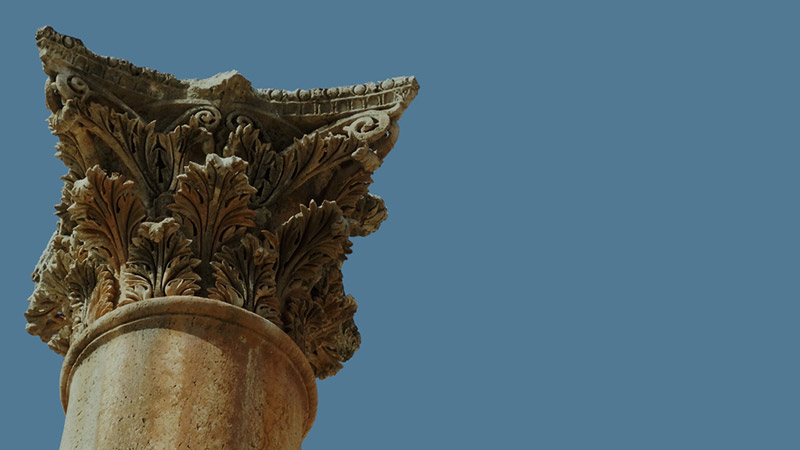
Belvoir Fortress
The fortress of Belvior has both an outer fortification and an inner castle. A moat, hewn out of the same bedrock quarried to build the castle, encircles the structure on three sides. Towers stood in each corner and in the center of the outer wall...
MORE

Caesarea
Herod seized an opportunity to control world trade by building a seaport on Israel's coast, where the sea routes and the predominant land route intersected. Caesarea was a glorious city, covered with marble, and symbolizing the vast wealth that He...
MORE

Caldarium
This photograph shows the remains of the caldarium (hot bath) of the public bathhouse. The floor of this room, now gone, was originally placed on the more than 200 columns seen here. The floor itself was probably a mosaic.The walls were faced with...
MORE

Casting the Net
Casting the NetThis modern-day fisherman demonstrates how to use a cast net, one type of net used in New Testament times (Mark 1:16-18). The net is 18 to 25 feet in diameter. The fisherman arranges it on one arm, stands in the boat, and throws it ...
MORE

Cistern of Masada
Cisterns Herod built to provide water during times of siege and to fill his luxurious swimming pools and supply his bathing complexes. The amount of water needed was staggering. There were several swimming pools on top of the desert mountain, wher...
MORE

Cisterns
What was "Cistern Water"In Israel, the rainy season is only five months long, stretching from November through March. Since fresh springs like those at En Gedi are rare, most ancient cities, towns, and even households used cisterns to ca...
MORE

City Life
Most cities from the biblical period were fairly small, and people lived in closely knit, well-defined communities. Jerusalem of David's time covered 9-10 acres with a population of 1,500-2,000 persons. Jerusalem during Jesus' time occupied about ...
MORE

Clever Counterfeits
The False Claims of the CultsEach of the cults in Pergamum was a counterfeit, a clever copy of the things that God alone provides. Each god took credit or honor away from God, thus giving it to something human or of human invention. False Gods ...
MORE





































